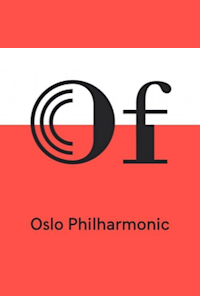Oslo Philharmonic and Young Philharmonic
The Oslo Philharmonic plays Shostakovich joined by the Young Philharmonic.
Vasily Petrenko and the Oslo Philharmonic are joined by young, gifted musicians from Young Philharmonic and the “Crescendo” programme in Shostakovich’s explosive confrontation with Stalin in the form of the composer´s tenth symphony. In addition, Chinese-American pianist George Li will perform Grieg’s A-minor concerto − surely one of the most famous piano concertos of our time. A freshly commissioned work from Magnar Åm for brass and percussion introduces this programme, filling the Oslo Concert Hall with brand new music.
It’s always a special occasion when the Oslo Philharmonic presents new Norwegian music for the very first time. Magnar Åm (b. 1952) represents a distinctive voice among living composers, and his style often bears traits of folk songs, psalms and classical impulses. We encourage our listeners to embrace this new work for brass and percussion with open ears and an inquisitive mind.
The dramatic whirl of the timpani which leads us from silence to fiery music in Edvard Grieg’s (1843−1907) Piano Concerto is one of the most effective and famous musical openings in the classical repertoire. With this particular bang, Grieg forged his way into European music culture, engraving himself onto musical history − on which the young composer left an indelible trace. From the very first note, the piano soloist plays “Grieg’s leading motif”, a musical signature inspired by melodic turns in Norwegian folk music. Nevertheless, the clearest connection to traditional music is represented by the Halling dance rhythms in the third movement. Before the finale takes off, Grieg demonstrates further strengths: the lyrical melodies, the atmospheric harmonies, and passion in the Adagio.
One might picture fjords and mountains when one hears Grieg’s concerto, but the composer himself gazed upon a completely different landscape, far from Norway, when he wrote the piece: Sollerød in Denmark. On a musical level, Grieg also drew inspiration from other places. The concerto has much in common with Schumann’s Piano Concerto in A-minor (1845), which Grieg himself had heard as a young student in Leipzig. Grieg’s own concerto has become an equally important pillar in both Norwegian musical heritage and remains one of the world’s most famed concertos. It has been so since its world premiere, which was performed by Edmund Neupert as soloist in Copenhagen in 1869, and since Franz Liszt played it enthusiastically in Rome in 1870. It was also the very first piano concerto to be recorded on LP, by Wilhelm Backhaus, in 1909.
Dmitri Shostakovich’s (1906−1975) tenth symphony is also a prominent work. The composer’s life and career were heavily coloured by the Soviet regime, and he received constant criticism and death threats due to his “formalistic music” which was not perceived to serve the interests of Communism. Several of his artist colleagues simply disappeared, and it is said that he slept in his own hallway with a ready-packed suitcase so as not to wake his family should he suddenly be arrested.
Given this as a musical backdrop, it’s no surprise that many have interpreted the second movement of Symphony No. 10 as a musical expression of Stalin’s terror. The strings play so jarringly and the woodwinds so violently that the sound becomes distorted. After a while the whole orchestra, including a militant snare drum. joins in on the monstrous action. Following this musical violence, a mystical movement begins in which a small, mocking motif dances around, teasing the listeners. The motif is Shostakovich’s own musical signature which includes the notes D - E-flat - C - B natural. The two odd middle movements are flanked by two serious, at times desperate, outer movements, and in the wonderfully hysterical ending one doesn’t know whether to laugh or cry. Symphony No. 10 was, fittingly enough, performed in Leningrad for the first time in 1953, the same year that Stalin died.

